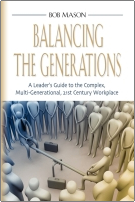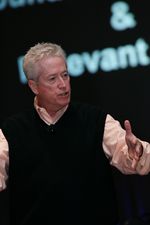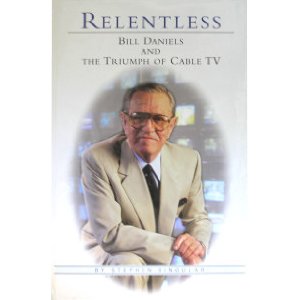 Get your copy now!
Get your copy now!
I'm proud to announce the release of my new book, Balancing the Generations: A Leader's Guide to the Complex, Multi-Generational, 21st Century Workplace
The book examines each generation, dispels common myths, and gives leaders tools to build a more effective organization by helping them recognize and take advantage of each generation's strengths.
If you were born between 1900 and 2000 and are in the 21st Century workplace, you need to read this book!
PLANNING TO EXCEL: STRATEGIC PLANNING THAT WORKS
 Get your copy now and Plan to Excel!
Get your copy now and Plan to Excel!
Plan for success
train your leaders to lead
and help them excel!!
With all the despair
about the economic situation,
this is the time
to plan and train
for a positive future.
Plan for success
and train your managers to lead! |

Audacious Goals and the Apollo Project
By Bob Mason
On May25, 1961, President John F. Kennedy addressed a joint session of Congress to request funding for space projects. In that speech, Kennedy said "I believe that this nation should commit itself to achieving the goal, before this decade is out, of landing a man on the Moon and returning him safely to the Earth." That was truly an audacious goal. By mid-1961 the U.S. had not yet even placed a man in orbit and the Soviet Union had only accomplished that feat only a little more than one month earlier. There are some valuable lessons in goal setting to be learned from Kennedy's speech.
First, Kennedy was very clear about the reason for sending a man to the moon. He actually had no great interest in space exploration, he wanted to beat the Soviets and demonstrate the nation's superiority. In this age of space stations and regular satellite launches it might be a little difficult to understand his motives but 1961 was a very different time. The U.S. was shocked when the Soviets orbited the first man-made satellite, Sputnik, in 1957 and had found themselves in what became known as the "space race." It was a race the nation was losing.
Second, Kennedy was very forthright about the cost of meeting the goal. He estimated the cost of his entire space program to be between $7.5 and $9 billion. That's between about $55 and $66 billion in 2011 dollars.
Third, Kennedy had complete confidence in the ability for American scientists and engineers to accomplish the goal. He proposed a very tight timeline, only 8 ½ years to go from almost no capability to man on the moon. He knew it was a challenge, but expressed his confidence in the nation's abilities.
More than once I've heard leaders say that they like to set goals that they know are unreachable. They believe that by setting unreachable goals, they will still move much further ahead than they would with more reasonable goals. That's a dangerous philosophy. Some might have thought that Kennedy's goal was unreachable, but he believed in it and sold the idea to others as something that could be done. How successful would he have been if he hadn't had that personal belief and commitment? There's nothing wrong with setting difficult goals, or ones that will require a considerable stretch on the part of the organization. But when the goal is clearly unreachable, there is likely to be less forward movement, not more.
Don't be shy about setting difficult goals. Just make sure they are achievable. What is your audacious goal?
|

More of the Same, But Better?
By Steve Miller
In my opinion, one of the great pieces of bad management
advice is to practice ongoing incremental improvement.
I've watched too many businesses over the years fall into
this habit, thinking they're building for the future.
First, I will say that, yes, incremental improvement is
always necessary. We should always be looking for ways
to do things better, cheaper, faster. None of us can afford
to allow our competition nor our marketplace to move
ahead simply by doing something a little bit better.
But incremental improvement is just the ante to be in the
game. In order to truly separate ourselves in the future, we
must look for ways to improve that are not just better, but
vastly different, vastly superior, and very difficult to copy.
However, adopting this mindset over the "more of the
same, but better" strategy is very difficult to do. Creative
thinking, brainstorming, and uncopyable innovation
require a willingness to be uncomfortable.
I recently facilitated a strategic planning session where I
forced the participants far outside their comfort zones. I
immersed them in experiences and environments that were
completely alien to expose them to new thinking and new
ideas. This method is extremely effective, but I can tell you
many of the participants were initially unhappy. One was
very vocal in his displeasure.
But true creative thinking MUST be uncomfortable. If
you're involved in a brainstorming session and the top
ideas don't make everyone uncomfortable, then they aren't
creative, they're just improvement. Improvement doesn't
win the long-term battle. Innovation does.
Ultimately, my strategic planning participants saw the
method to my madness and our results were far better
than we would have achieved without the alien exercise.
When was the last time you and your team really pushed
yourselves outside your comfort zones? When was the last
time you exposed yourself completely to alien thinking
and immersed yourself in alien experiences to drive your
brainstorming process?
True innovation isn't just better. It shatters rules and writes
new ones in their place.
Steve Miller is best known as Kelly's Dad and a marketing gunslinger. He advises corporations and speaks around the world. Read his blog at http://www.twohatmarketing.com. |
 Relentless: Bill Daniels and the Triumph of Cable TV
Relentless: Bill Daniels and the Triumph of Cable TV
by Stephen Singular
You may have never heard of Bill Daniels, but you've surely heard of cable TV and that's where Bill Daniels has had an impact on your life.
Hobbs, New Mexico, where Robert William Daniels III was born, was not exactly a booming metropolis in the 1930's and 1940's. After flying combat missions for the Navy in World War II and Korea, Daniels decided to move to Casper, Wyoming to set up an oil insurance business. In today's world it's difficult to imagine life without a television but that's the world Daniels grew up in, so when he saw his first television in a bar in Denver, Colorado, he was amazed and quickly realized this device was something everyone would want. Arriving in Casper, Wyoming, he found no TVs and saw an opportunity. Although he would have many ups and downs, he never looked back.
In the days before microwaves and satellites, there were only two ways to broadcast a TV signal; by antenna, or with coaxial cable. It was cable that allowed signals to be broadcast over greater distances, and it was cable that Daniels saw as the future. In today's world of only a few cable giants, it's difficult to imagine small cable operators in towns and cities across the nation. Daniels started out building a cable service in Casper, but his real legacy was brokering deals to build larger companies by combining these smaller operators. Daniels was also one of the strongest voices in building what we now think of as the cable channels that competed with the established networks.
In Relentless: Bill Daniels and the Triumph of Cable TV, Stephen Singular provides a look at Daniels as well as many of the people whose lives he influenced and impacted. What is most impressive is the loyalty he demonstrated to his employees and partners, and the loyalty he received in return. Like most successful business people, he demanded high standards and hard work, but unlike so many, he rewarded them as well.
Throughout the book, Singular provides example after example of people who went to work for Daniels because of high pay and good benefits. There is though, another aspect that cannot be ignored: Daniels took care of people. He provided employees with opportunities to better themselves, and the autonomy to make their own decisions and develop their own areas of responsibility. He demanded complete honesty but was also very forgiving. He understood one of the keys to good leadership; people make mistakes. Probably one of the most remarkable characteristics was his ability to bring out the best in others. In a fitting tribute, the nurse who cared for him in his final weeks said she didn't want to let him down and, as a result, he had made her a better nurse. I can't think of a better tribute.
If you're interested in the history of cable TV, Relentless is a good book. But, it's real value is the biography of a leader who really understood the principles of good leadership.
|
A QUESTION ON LEADERSHIP
What are the essential elements of a strategic plan
Based on a lot of years of experience in many different types of organizations, I've found that a successful strategic plan must include the following elements.
1. A leader's vision
2. A brief but clear mission statement
3. A statement of the organization's values
4. An understanding of customers and suppliers
5. A clear analysis of impediments to mission success
6. Goals and Objectives.
There is another essential element though. Leadership must clearly communicate the plan so that everyone in the organization knows what the plan is and their part in making it a success. Also leaders must follow-up and stick to the plan.
I do not use SWOT analysis or Gap analysis or core competencies, or anything else like that because I've found that they tend to muddy the waters. In fact, in every single case I experienced where these are used, a usable plan never emerges. That's not to say these techniques aren't useful, just not when creating the basic strategic plan that everything else is based on.
Please send your thoughts and questions to comments@planleadexcel.com.
|
| |
THINGS TO PONDER
Would a fly without wings be called a walk?
How come you never hear father-in-law jokes?
Isn't it a bid unnerving that doctors call what they do practice?
Isn't Disney World just a people trap operated by a mouse?
Why do people who know the least seem to know it the loudest?
Is atheism a non-prophet organization?
Why do they say new and improved? It can't be new if it's improved, can it?
For more, visit freewebs.com |
|
|
